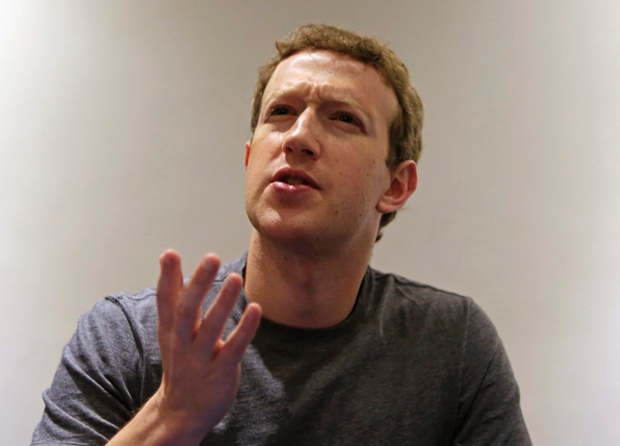
TIME AND DISTANCE OVERCOME
“Of what use is such an invention?” the New York World asked shortly after Alexander Graham Bell first demonstrated his telephone in 1876. The world was not waiting for the telephone.
Bell’s financial backers asked him not to work on his new invention because it seemed too dubious an investment. The idea on which the telephone depended—the idea that every home in the country could be connected by a vast network of wires suspended from poles set an average of one hundred feet apart— seemed far more unlikely than the idea that the human voice could be transmitted through a wire.
Even now it is an impossible idea, that we are all connected, all of us.
“At the present time we have a perfect network of gas pipes and water pipes throughout our large cities,” Bell wrote to his business partners in defense of his idea. “We have main pipes laid under the streets communicating by side pipes with the various dwellings…. In a similar manner it is conceivable that cables of telephone wires could be laid underground, or suspended overhead, communicating by branch wires with private dwellings, counting houses, shops, manufactories, etc., uniting them through the main cable.”
Imagine the mind that could imagine this. That could see us joined by one branching cable. This was the mind of a man who wanted to invent, more than the telephone, a machine that would allow the deaf to hear.
For a short time the telephone was little more than a novelty. For twenty-five cents you could see it demonstrated by Bell himself, in a church, along with singing and recitations by local talent. From some distance away, Bell would receive a call from “the invisible Mr. Watson.” Then the telephone became a plaything of the rich. A Boston banker paid for a private line between his office and his home so that he could let his family know exactly when he would be home for dinner.
Mark Twain was among the first Americans to own a telephone, but he wasn’t completely taken with the device. “The human voice carries entirely too far as it is,” he remarked.
By 1889, the New York Times was reporting a “War on Telephone Poles.” Wherever telephone companies were erecting poles, home owners and business owners were sawing them down or defending their sidewalks with rifles.
Property owners in Red Bank, New Jersey, threatened to tar and feather the workers putting up telephone poles. A judge granted a group of home owners an injunction to prevent the telephone company from erecting any new poles. Another judge found that a man who had cut down a pole because it was “obnoxious” was not guilty of malicious mischief.
Telephone poles, newspaper editorials complained, were an urban blight. The poles carried a wire for each telephone— sometimes hundreds of wires. And in some places there were also telegraph wires, power lines, and trolley cables. The sky was netted with wires.
The war on telephone poles was fueled, in part, by that terribly American concern for private property, and a reluctance to surrender it for a shared utility. And then there was a fierce sense of aesthetics, an obsession with purity, a dislike for the way the poles and wires marred a landscape that those other new inventions, skyscrapers and barbed wire, were just beginning to complicate. And then perhaps there was also a fear that distance, as it had always been known and measured, was collapsing.
The city council in Sioux Falls, South Dakota, ordered policemen to cut down all the telephone poles in town. And the mayor of Oshkosh, Wisconsin, ordered the police chief and the fire department to chop down the telephone poles there. Only one pole was chopped down before the telephone men climbed all the poles along the line, preventing any more chopping. Soon, Bell Telephone Company began stationing a man at the top of each pole as soon as it had been set, until enough poles had been set to string a wire between them, at which point it became a misdemeanor to interfere with the poles. Even so, a constable cut down two poles holding forty or fifty wires. And a home owner sawed down a recently wired pole, then fled from police. The owner of a cannery ordered his workers to throw dirt back into the hole the telephone company was digging in front of his building. His men threw the dirt back in as fast as the telephone workers could dig it out. Then he sent out a team with a load of stones to dump into the hole. Eventually, the pole was erected on the other side of the street.
Despite the war on telephone poles, it would take only four years after Bell’s first public demonstration of the telephone for every town of more than ten thousand people to be wired, although many towns were wired only to themselves. By the turn of the century, there were more telephones than bathtubs in America.
“Time and dist. overcome,” read an early advertisement for the telephone. Rutherford B. Hayes pronounced the installation of a telephone in the White House “one of the greatest events since creation.” The telephone, Thomas Edison declared, “annihilated time and space, and brought the human family in closer touch.”
*
In 1898, in Lake Cormorant, Mississippi, a black man was hanged from a telephone pole. And in Weir City, Kansas. And in Brookhaven, Mississippi. And in Tulsa, Oklahoma, where the hanged man was riddled with bullets. In Danville, Illinois, a black man’s throat was slit, and his dead body was strung up on a telephone pole. Two black men were hanged from a telephone pole in Lewisburg, West Virginia. And two in Hempstead, Texas, where one man was dragged out of the courtroom by a mob, and another was dragged out of jail.
A black man was hanged from a telephone pole in Belleville, Illinois, where a fire was set at the base of the pole and the man was cut down half-alive, covered in coal oil, and burned. While his body was burning the mob beat it with clubs and cut it to pieces.
Lynching, the first scholar of the subject determined, is an American invention. Lynching from bridges, from arches, from trees standing alone in fields, from trees in front of the county courthouse, from trees used as public billboards, from trees barely able to support the weight of a man, from telephone poles, from streetlamps, and from poles erected solely for that purpose. From the middle of the nineteenth century to the middle of the twentieth century, black men were lynched for crimes real and imagined, for whistles, for rumors, for “disputing with a white man,” for “unpopularity,” for “asking a white woman in marriage,” for “peeping in a window.”


